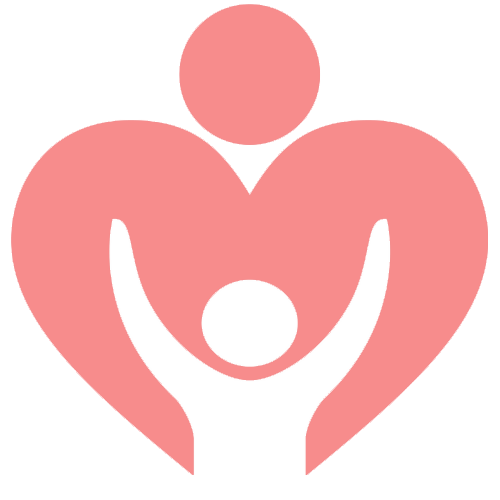Women may experience sleep disturbances at certain stages of pregnancy. Difficulty falling asleep, frequent awakenings, and restless or short sleep appear for physiological or psychological reasons. Sleep problems can develop into insomnia. This is a more serious violation that needs to be dealt with immediately.
A woman in position may feel tired and lack sleep even if she sleeps all night. This suggests that the quality of night rest is reduced.
When Do Sleep Problems Start in Pregnancy?
Sleep problems during pregnancy rarely begin in the first trimester. On the contrary, a woman will want to sleep all the time during this period. Violations make themselves felt in the second trimester. Normally, they appear for a short time.
The third trimester is also accompanied by sleep problems. It is extremely difficult for a woman to take a comfortable position when her belly is very large.
EXACT WEEKS IT MAY HAPPEN
The first serious sleep disturbances appear at 18 weeks. The child begins to move for the first time at this time. Sleep problems will be present until the baby’s biorhythms are synchronized with the mother’s.
Further sleep disturbances will be noticeable at 25, 30, and 36 weeks of pregnancy. A big belly, emotional stress, and physiological needs interfere with sleep.

When will it end?
The first sleep disturbances disappear after the child’s biorhythms are established. This is after about 20 weeks. Further, everything will depend on the condition of the mother and her compliance with the regimen. Sleep problems resolve completely after 36 weeks. A woman at this time is already fully adapting to sleep on her side.
How Does it Feel?
A woman feels sleep problems when her awakenings become too frequent and it is difficult to fall asleep again. The daily regimen and the norms of night rest get lost. The pregnant woman feels fatigued, muscle weakness, and tension in the head. She cannot wake up often in the morning and sleeps for a long time during the day.
Acute
Insomnia can appear with severe sleep disturbances. Complete lack of sleep shifts from night to night. The woman falls asleep closer to the morning. This reflects badly on her well-being. There are headaches, increased fatigue, absent-mindedness, and lethargy.
Mild
Sleep problems in a mild form are felt as difficult and long falling asleep or overexcitement. A pregnant woman sleeps less than usual. She wakes up no later than 6 am. Sleep norms are broken.
Chronic lack of sleep can lead to irreversible consequences in a woman’s body.
Prevention methods
It is necessary to eliminate this problem before pregnancy so that there are no problems with sleep during the gestation period. Be sure to find out the cause of the symptom with a tendency to insomnia. A sound sleep is guaranteed by a healthy lifestyle. Some preventive measures for sleep problems:
Daily activity
You need to spend as much energy as possible during the day so that the desire to fall asleep comes on time. Activity should include physical exercise, mental activity, and emotional diversity. Sedentary work gives bad fatigue from which sleep can only get worse.
Avoid stress
Constant nervous tension affects the state of health. Appetite worsens, immunity decreases, and chronic diseases become aggravated. Sleep problems appear with poor stress resistance and psychologically hard work. Rescue yourself from stressful shackles. Avoid conflicts, quarrels, and empty disputes. Remain calm and balanced. This will help improve sleep.
Go to bed earlier
The female body needs to sleep during the “golden hours”. Go to bed no later than 11 pm. This will allow you to get the most out of your sleep. It will be strong and complete. The hormonal balance will improve. The lack of serotonin will be replenished. You will feel much better and wake up easier.
Why Sleep Problems Occurs in Pregnancy?
Physiological causes of poor sleep: pain in the abdomen and back, sudden leg cramps, urge to urinate, and itchy skin. Sleep disturbances appear due to the active movements of the fetus. They wake up a pregnant woman in the middle of the night or do not let her sleep at all.
A common cause of poor sleep during pregnancy is a large belly. The woman does not find a comfortable position to relax and fall asleep. She is afraid of harming the child, lying on her stomach, or hitting herself during sleep. Psychological causes of poor sleep: fears, nervous overexcitation, nightmares, emotional sensitivity, anxiety.
Hormonal imbalance also makes its adjustments. A high level of progesterone keeps a woman in a state of tension. It is more difficult for her to fall asleep due to failures in the relaxation mechanisms. Severe sleep disturbances occur with a deficiency of trace elements of magnesium, vitamin B6, iodine, and biotin.
Remedies
It is necessary to find out the exact cause of sleep problems to determine the means of treatment. Do not forget about observing the daily routine, a healthy and active lifestyle, and maintaining an emotionally stable background. Eat healthy and varied. There are several ways to protect your body from sleep disorders:
Walk before bed
Try to walk every evening in the fresh air so that you sleep better, and fall asleep easier. This is extremely useful for the development of the baby and your well-being. Walking gives light physical activity, improves blood circulation, enriches the blood with oxygen, and relaxes.
Herbal tea
Don’t eat a lot before bed. Drink a large cup of herbal tea. The composition of the collection should include herbs relaxing the nervous system: lemon balm, mint, chamomile, and motherwort. Their action is very soft and pleasant. This tea is harmless and non-addictive.
Pillow for pregnant women
Sleep with a pregnancy pillow to easily find your sleeping position. It must be long. This will allow you to take the correct position, relax your legs and unload your back. The pillow should be placed to the side of you and wrap your legs around it. The top edge can be put under the head or left free.
WHEN TO CONTACT A DOCTOR?
You should consult a doctor if sleep problems persist. Urgently go to the doctor when there is constant insomnia. Sleep disturbances adversely affect the state of the nervous system. Women who suffered from sleep problems during pregnancy have an increased risk of developing depression after childbirth.
Too frequent nighttime awakenings for no reason is a serious signal of internal problems. This is most often a lack of trace elements in the body.
What Not to Do
It is impossible to hope that the problem of sleep disorders will go away on its own. Especially if we are talking about insomnia. This is a serious symptom that requires examination. Do not expect that sleep will recover quickly. Questionable drugs or non-traditional methods of treatment should not be used. Prohibitions for sleep disorders:
Overeat before bed
This will cause heartburn, a feeling of heaviness, bloating, and other problems. The digestive system will start working when the body needs to rest. Sleep will get worse.
Watch emotional movies and social networks
Shut down social media and put your phone away two hours before bed. Don’t watch thrillers, action, or horror movies.
Take antidepressants and sedatives
Any drugs can only be prescribed by a doctor. Antipsychotics and sedatives can have unpredictable effects on the fetus.












